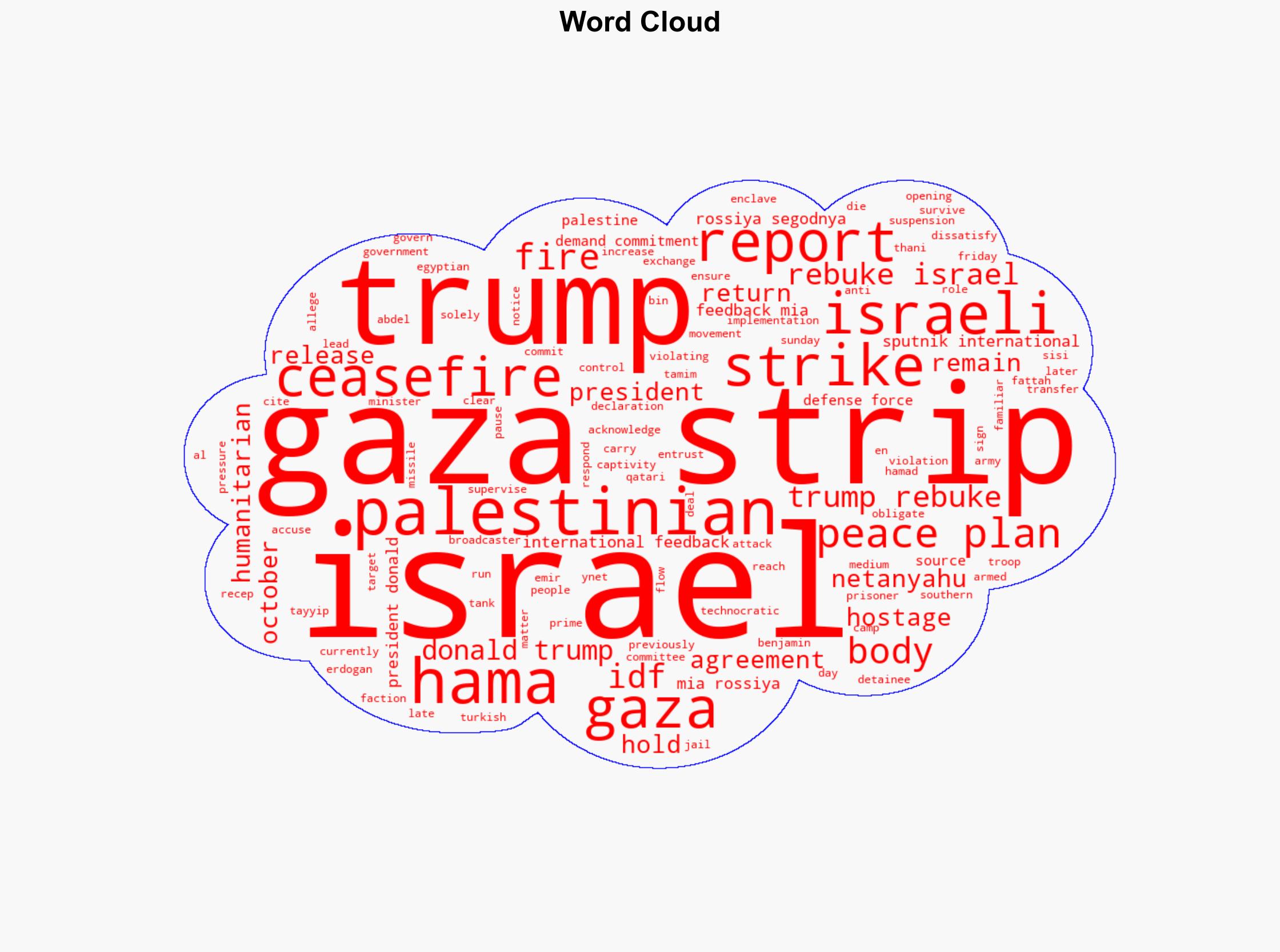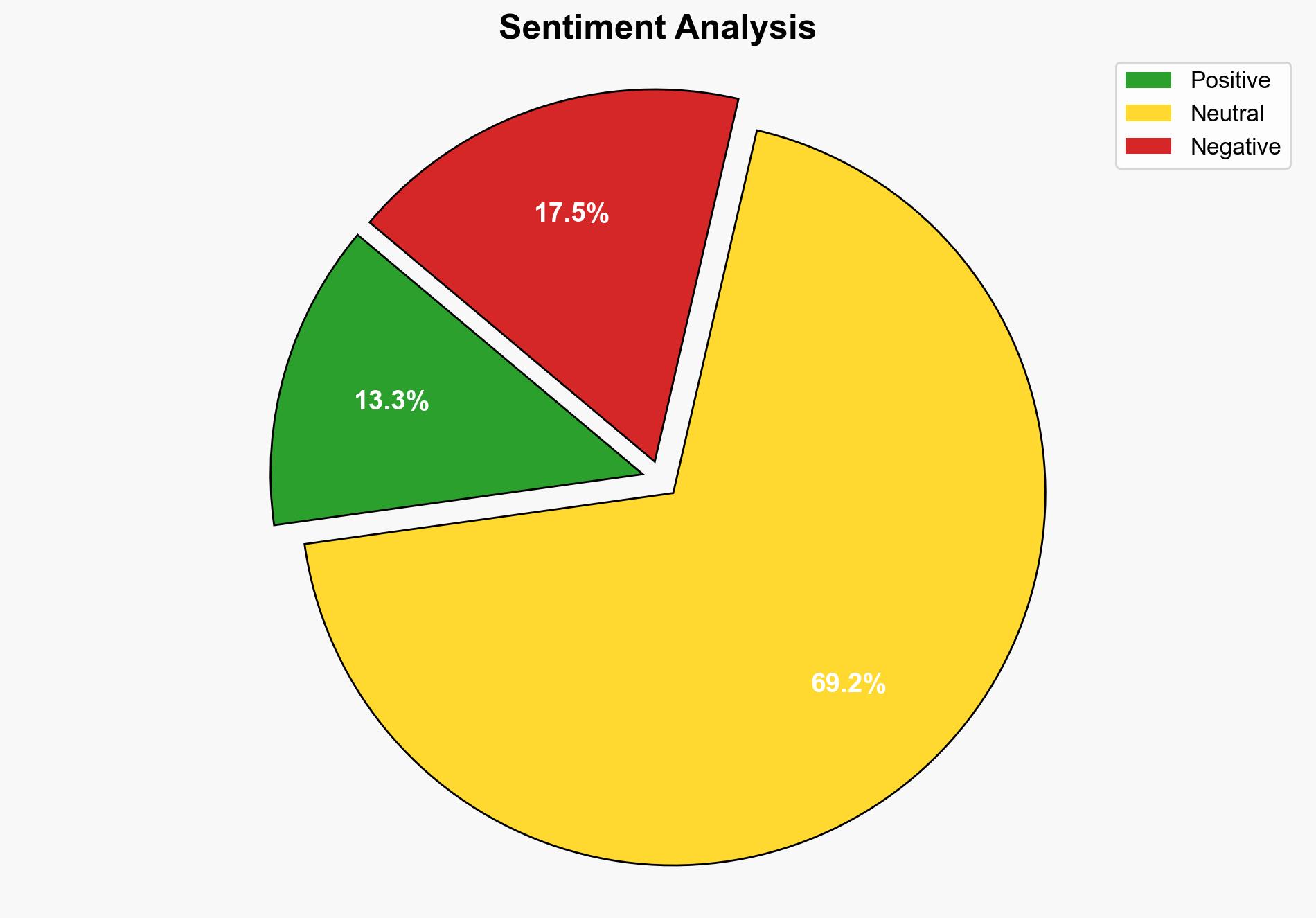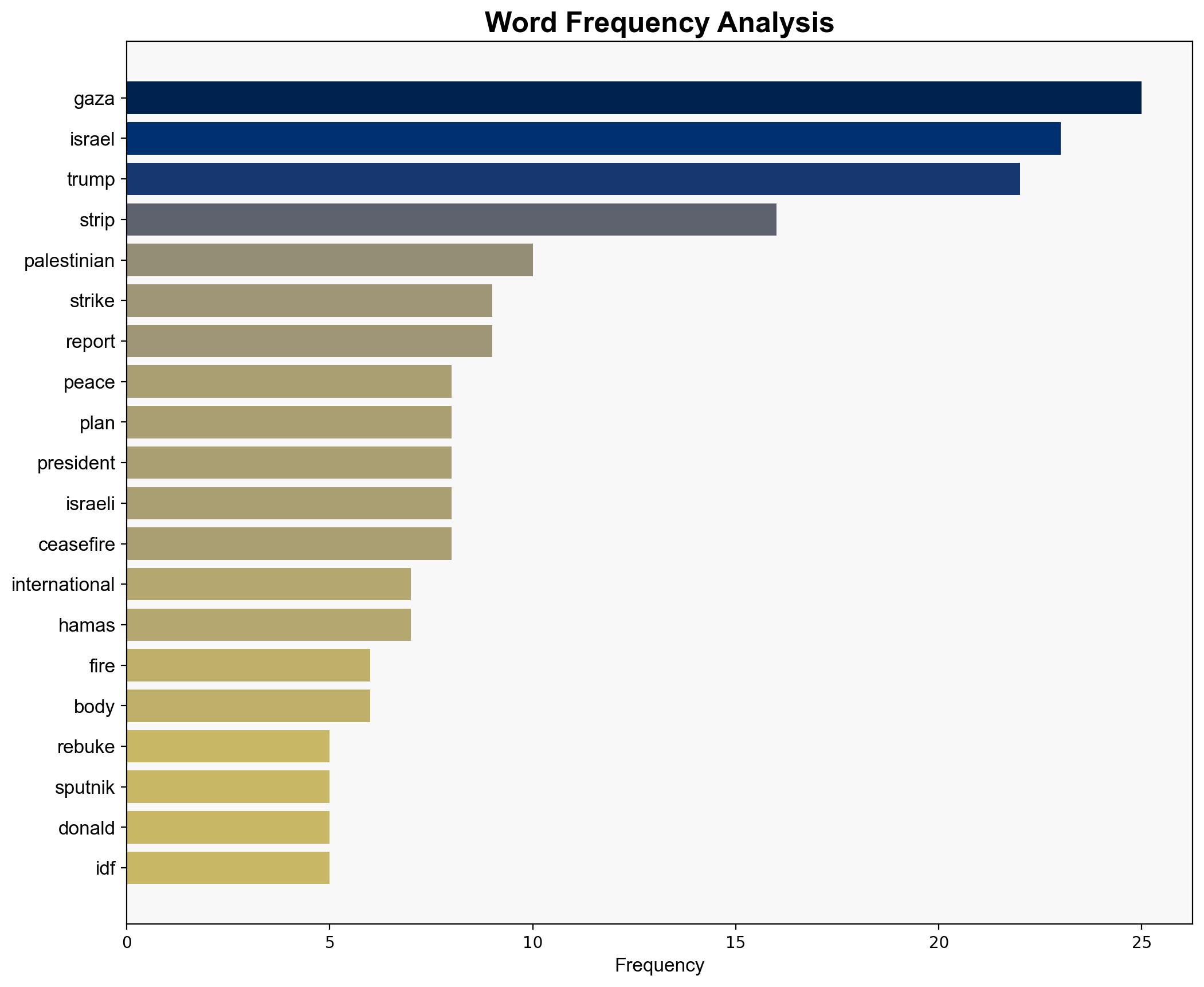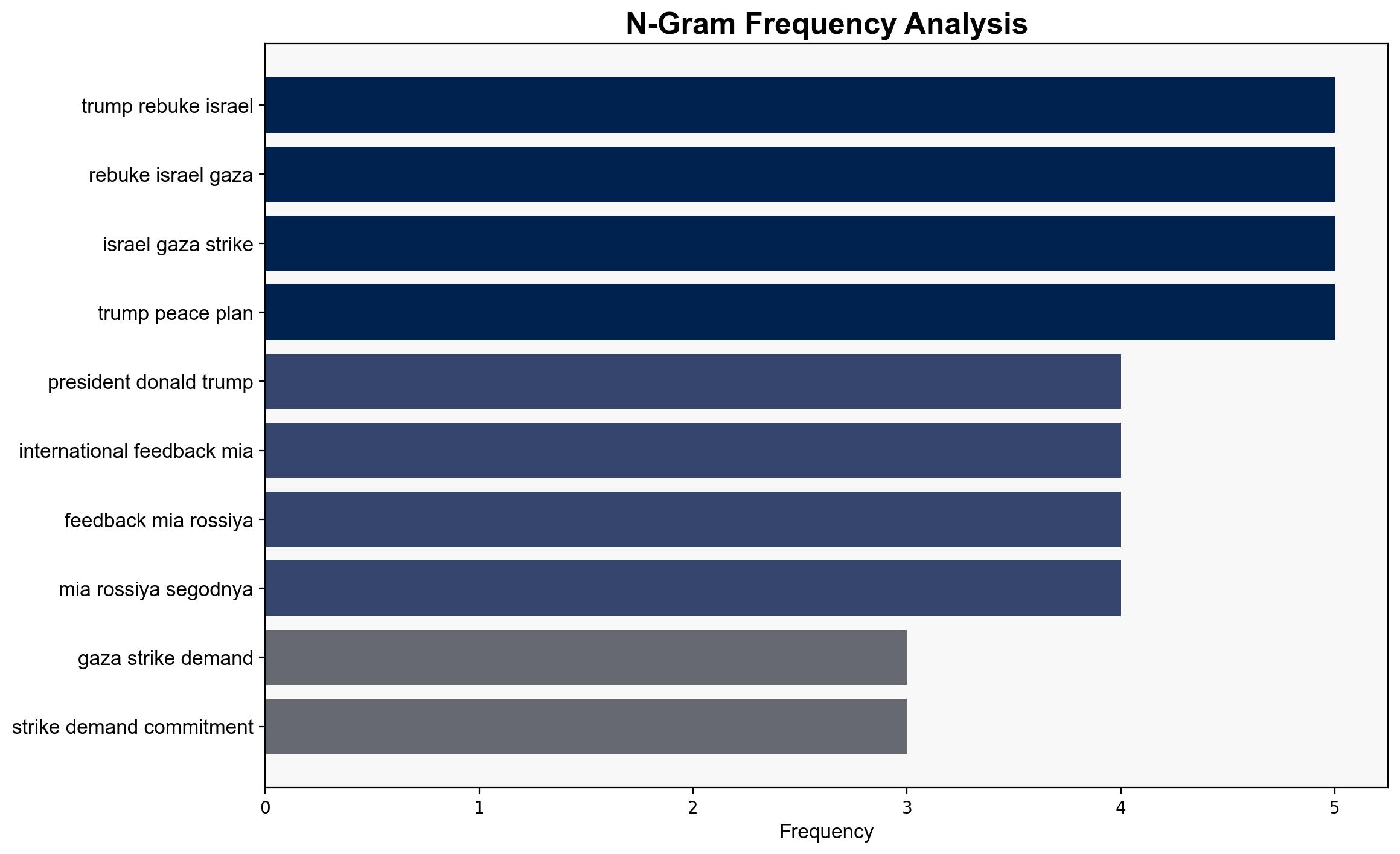Trump Rebukes Israel Over Gaza Strikes Demands Commitment to Peace Plan – Report – Sputnikglobe.com
Published on: 2025-10-24
Intelligence Report: Trump Rebukes Israel Over Gaza Strikes Demands Commitment to Peace Plan – Report – Sputnikglobe.com
1. BLUF (Bottom Line Up Front)
The most supported hypothesis is that President Trump is leveraging diplomatic pressure on Israel to adhere to a ceasefire agreement in Gaza, aiming to stabilize the region and advance his peace plan. Confidence in this hypothesis is moderate due to limited corroborative details and potential biases in the source. Recommended action includes monitoring Israel’s compliance and regional reactions to anticipate shifts in geopolitical dynamics.
2. Competing Hypotheses
1. **Hypothesis A**: President Trump is genuinely committed to enforcing the ceasefire in Gaza to promote his peace plan, using diplomatic pressure on Israel as a strategic tool.
2. **Hypothesis B**: The rebuke is primarily a political maneuver to appease international stakeholders and domestic audiences, with limited intent to enforce substantial change in Israeli actions.
Using ACH 2.0, Hypothesis A is better supported by the explicit mention of Trump’s dissatisfaction with Israel’s recent actions and his engagement with other regional leaders. However, Hypothesis B cannot be dismissed due to the lack of detailed evidence of follow-through actions.
3. Key Assumptions and Red Flags
– **Assumptions**: It is assumed that Trump’s rebuke is a direct reflection of U.S. foreign policy priorities. It is also assumed that Israel’s actions are solely influenced by external diplomatic pressure.
– **Red Flags**: The source’s potential bias and lack of independent verification of claims. The absence of direct statements from Israeli officials or concrete evidence of policy changes.
– **Blind Spots**: Potential internal Israeli political dynamics influencing decisions, and the broader regional context affecting both U.S. and Israeli strategies.
4. Implications and Strategic Risks
– **Geopolitical Risks**: Failure to enforce the ceasefire could lead to renewed hostilities, destabilizing the region further.
– **Economic Risks**: Prolonged conflict may impact regional trade and economic stability, affecting global markets.
– **Psychological Risks**: Continued violence could exacerbate tensions and radicalize populations, complicating peace efforts.
5. Recommendations and Outlook
- Enhance intelligence collection on Israel’s military and diplomatic activities to verify compliance with the ceasefire.
- Engage with regional allies to support diplomatic efforts and ensure a unified approach to conflict resolution.
- Scenario Projections:
- **Best Case**: Successful enforcement of the ceasefire leads to progress in peace negotiations.
- **Worst Case**: Breakdown of the ceasefire results in escalated conflict and regional instability.
- **Most Likely**: Intermittent compliance with the ceasefire, with ongoing diplomatic tensions.
6. Key Individuals and Entities
– Donald Trump
– Benjamin Netanyahu
– Abdel Fattah Sisi
– Tamim bin Hamad Al Thani
– Recep Tayyip Erdogan
7. Thematic Tags
national security threats, regional focus, diplomacy, Middle East peace process





